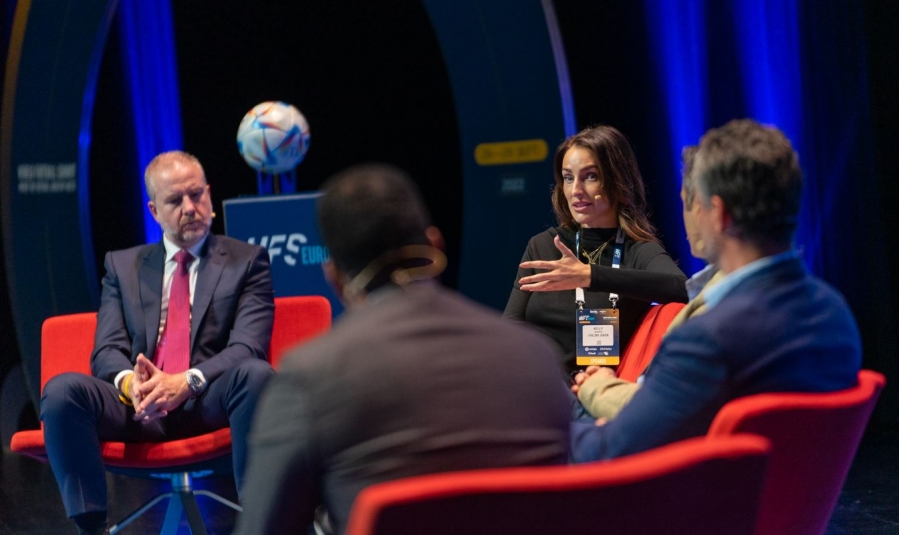
- José Guerra, LaLiga’s director of strategic operations, spoke at World Football Summit about the future of relationships in the football industry.
- The panel concluded that it is more important than ever before to understand consumers and partners’ interests outside of the sport.
The football industry is always evolving and so too are the people who operate in it. With the various actors in the industry becoming more socially conscious than ever before, this can change the way that business is conducted and this was the main topic of discussion at the panel titled ‘More than Legerdemain: Building lasting, more meaningful partnerships’, held at the 2022 World Football Summit in Seville.
There, José Guerra, LaLiga’s director of strategic operations, was one of the speakers and, along with his fellow panellists, he agreed that players, coaches, agents, directors, owners and fans have more interests away from the pitch than they did in the past.
As Kelly Hogarth, the founder and CEO of Thelma Gwen, asserted early on in the discussion: “We’re living in a world where we as consumers have a greater social conscience than we ever did before and I think it has given brands an opportunity to really redefine what their values are beyond a physical product.”
Asked how institutions can build lasting and more meaningful partnerships in this context, Guerra stated: “You have to know which people you're selling your products to. We are part of the community and the community is part of us. The companies that have a football team are also created by people that work and live in the community. To be worried about these other things is something we have to have in our business. This is what people want and we need to care about the things that they care about. It's something that we are always working on.”
Ultimately, this comes down to effective communication between the entities in the football industry and the different kinds of people who participate in it. That, for example, can require different approaches for match-goers of different ages.
As Guerra stated: “You have to communicate with every kind of person and we have different approaches for different groups of people. In our stadiums, we have people from Gen Z but also very old people, so we have to serve a range of people with different interests and we need to be able to reach all of them. You need to know what are the drivers of every brand and every partner, to make sure you serve the right people. We have products for Gen Z, but we might need different approaches with different groups.”
This may sound like a difficult task, but it is very much possible thanks to the power of the beautiful game. As one of the other panellists, Empower Sports CEO Pedro Pinto, put it: “You have an audience of over four billion when the World Cup comes around. Football is the most important communications tool on the planet.”
From the football business to the entertainment business
Another topic of discussion during the ‘More than Legerdemain: Building lasting, more meaningful partnerships’ panel centred on how the football industry’s relationships with spectators, both those who attend the stadiums and those who watch on television, has changed.
Discussing the past decade of this evolution, Guerra told the audience: “10 years ago we were thinking as a sport business or a football business, but now we're thinking as an entertainment business. I think this is basic to understanding the changes of the last 10 years. We are facing different competitors and a lot of companies that are changing the world. We are competing with Netflix, with Amazon, with many companies that are looking for people's time.”
LaLiga, having identified this change, could not sit still. Therefore, LaLiga reached an agreement with leading global investment fund CVC to provide the clubs with the necessary resources to fulfil their transformation strategies and to be leaders in the modern digital entertainment market.
Summarising this decision, Guerra added: “The change of the past 10 years has made our perspective of the future change. Last year, we struck an agreement with CVC for Boost LaLiga. In the end, these are funds for growth in the industry. I think that this growth comes from this change of the sport properties.”
